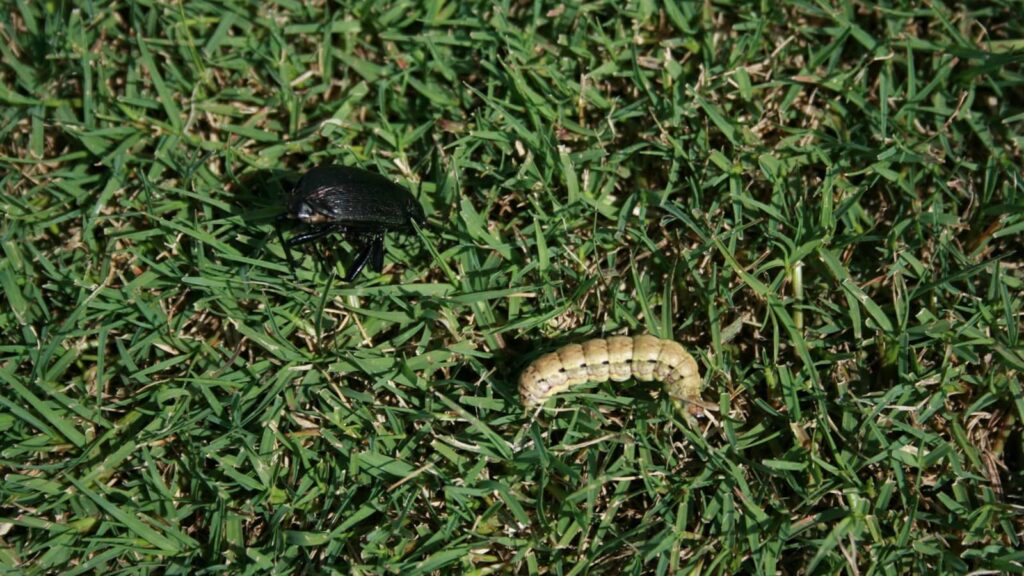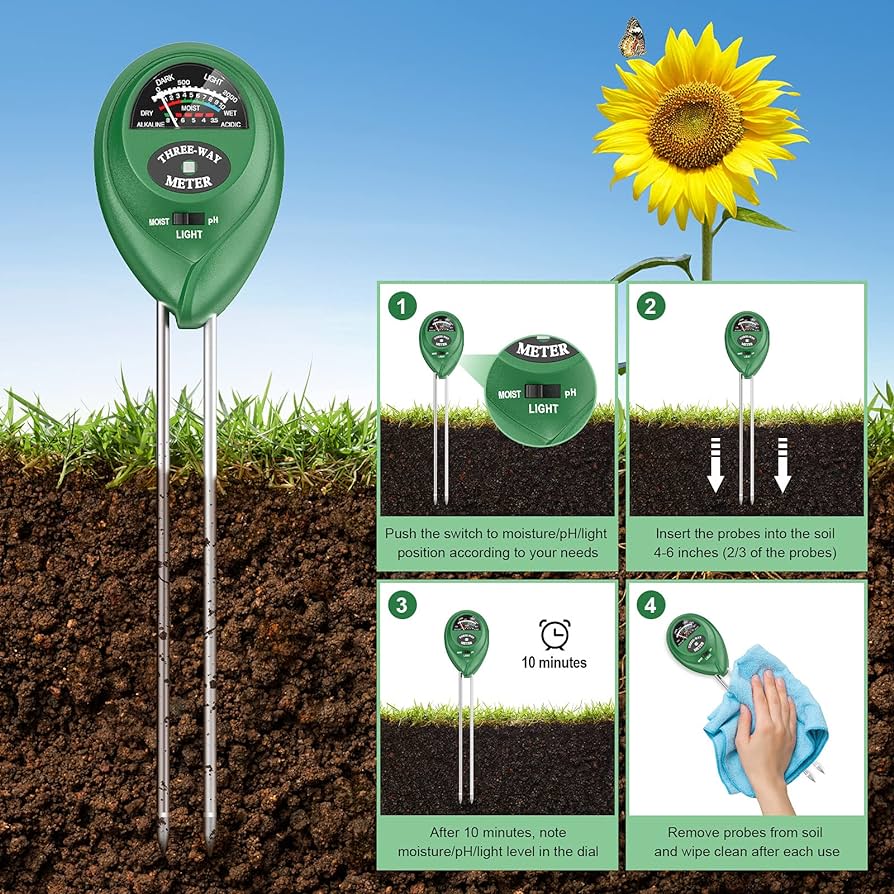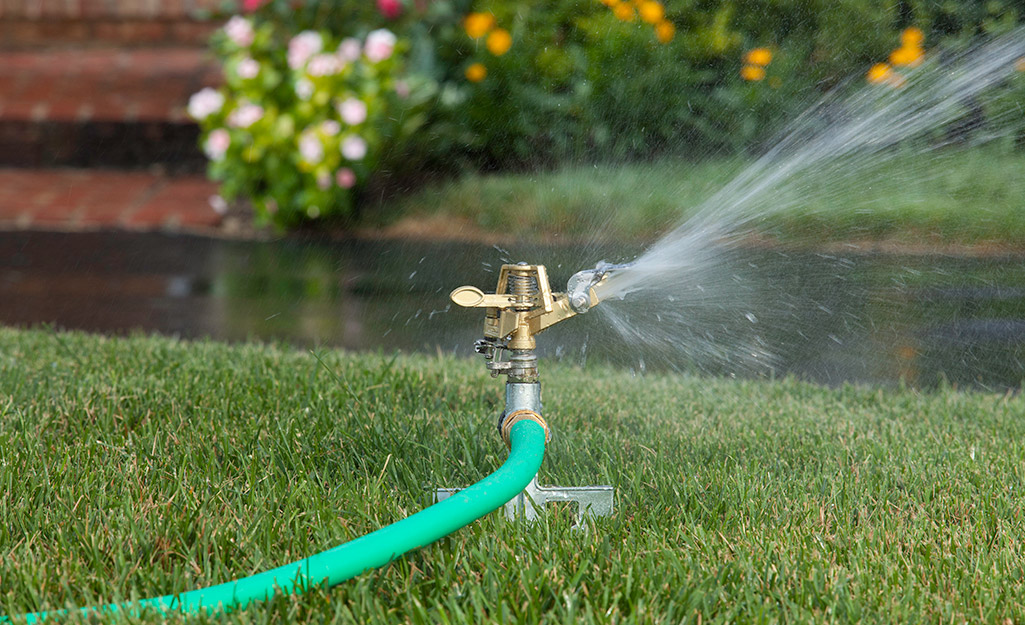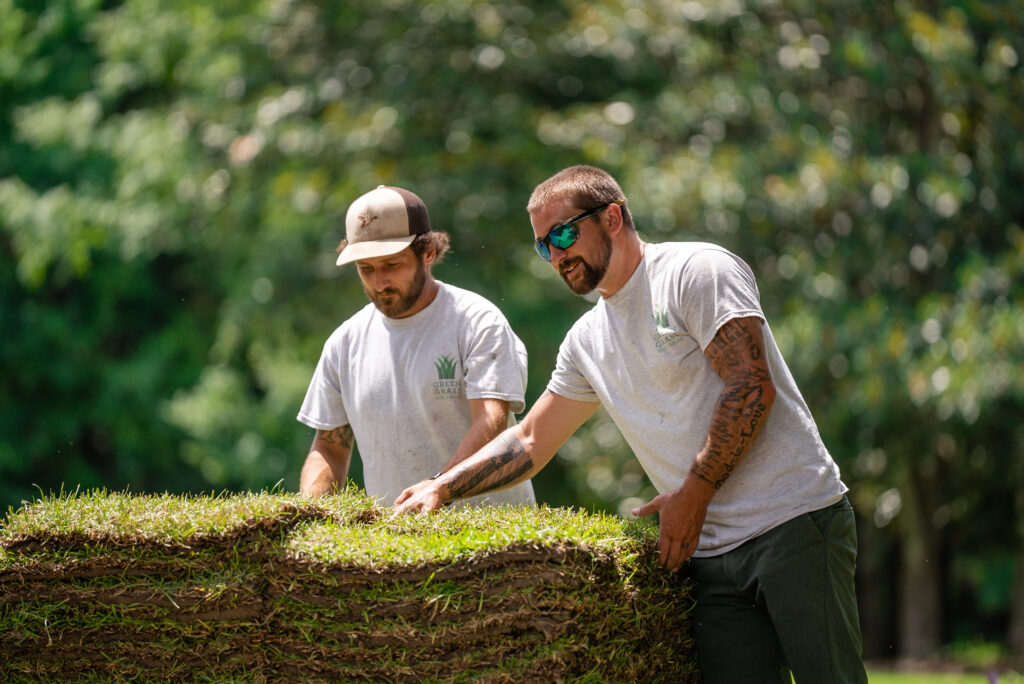Many lawn lovers enjoy the look bermuda grass brings to home landscapes. With the high-brow aesthetic appeal and fine grass blades, a bermuda grass lawn makes any home stand out from the rest of the neighborhood. This can quickly come to an end if the wrong kind of insect invades. Each grass type is more prone to certain insects, though.
For example, Bermuda grass is particularly susceptible to insects like bermuda grass mites. If you have a bermuda grass lawn, understanding which bugs, grubs, and insects prefer to chow down on this grass type is excellent for forming prevention strategies and possibly even curative solutions when circumstances get severe enough.
Common Insects in Bermuda Grass Lawns
Some of the most common insects that love munching on the roots and blades of bermuda grass are grub worms, or white grubs, cutworms, sod webworms, fall armyworms, billbugs, mole crickets, fire ants, nematodes, bermuda grass mites.

Cutworm

Sod Webworm

Billbug
Having the ability to identify the kind of insect or grub you are dealing with provides you with insight into which control products to use—especially when you’re dealing with a severe problem. Once you know the type of insect, you can browse herbicide labels to see which products will treat them. Be sure to read the product labels thoroughly to know if the chemical can be applied to your lawn without damaging the grass. Follow the product label’s instructions upon application. It is essential to know that there are a few cultural, non-chemical control methods for insect control you can use as well.
Cultural Methods of Insect Control in Bermuda Grass
One of the most important things you can do to fight off insects and pests is to keep your bermuda grass healthy with regular maintenance practices. This includes mowing at the correct times and an appropriate height of 0.5–1.5 inches. Ideal mowing heights for bermuda grass vary slightly from brand to brand.
Mowing reduces the grass blades for insects to live and nest in. When grass becomes too tall, it provides optimal coverage for insects. They may even lay their eggs here and continue to feed. Keeping the surface of your lawn clean will reduce the chances of insect infestation.
Be sure to irrigate your lawn appropriately. Most bermuda grass needs about one inch of water per week, including rainfall. Overwatering promotes disease outbreaks, and standing water is a perfect invitation for other pests like mosquitos, termites, cockroaches, and other pests.
Chemical Prevention for Insects in Bermuda Grass Lawns
Often, the same type of insect control product for treatment of currently invading insects can be used for prevention, but at a lower rate. Applying a systemic insect control product at a preventive rate is encouraged—especially if you’ve had problems with insect invasions. Systemic insecticides are absorbed into the plant and circulate through the plant’s tissues. As a result, the chemicals kill the insects feeding on the plants.
Sometimes you can prepare ahead of time by purchasing an insect control product labeled to treat the kind of insect you’ve experienced in the past. On the other hand, if you aren’t sure which insect you might see soon, a broad-spectrum insect control product may be your best option.
In either scenario, you will be applying less product for prevention than you will for fighting an invasion, and less product means less money. This is why applying preventatively is better than using it at a curative rate.
Read the product labels thoroughly to know if the chemical can be applied to your lawn without damaging the grass. Follow the product label’s instructions upon application.





